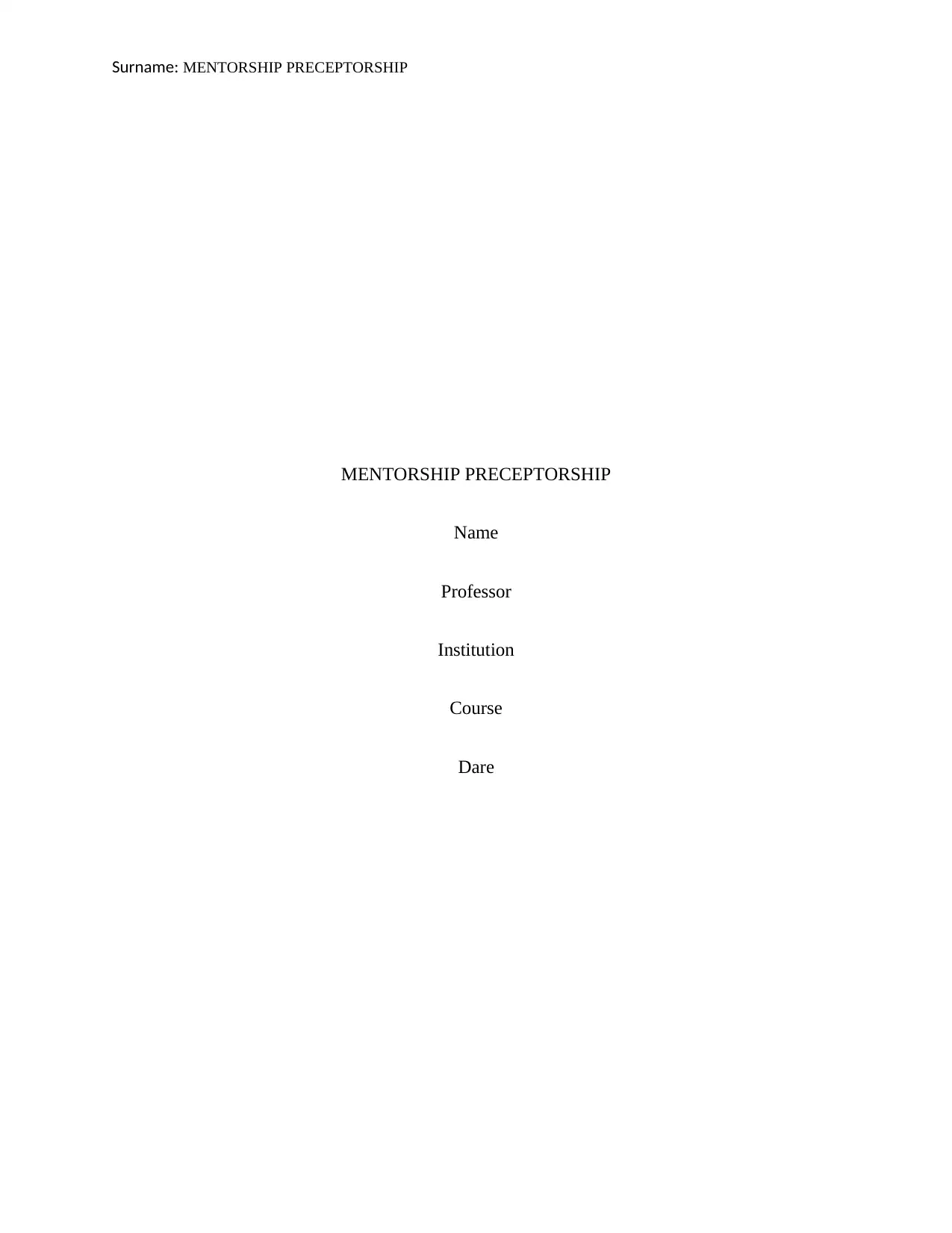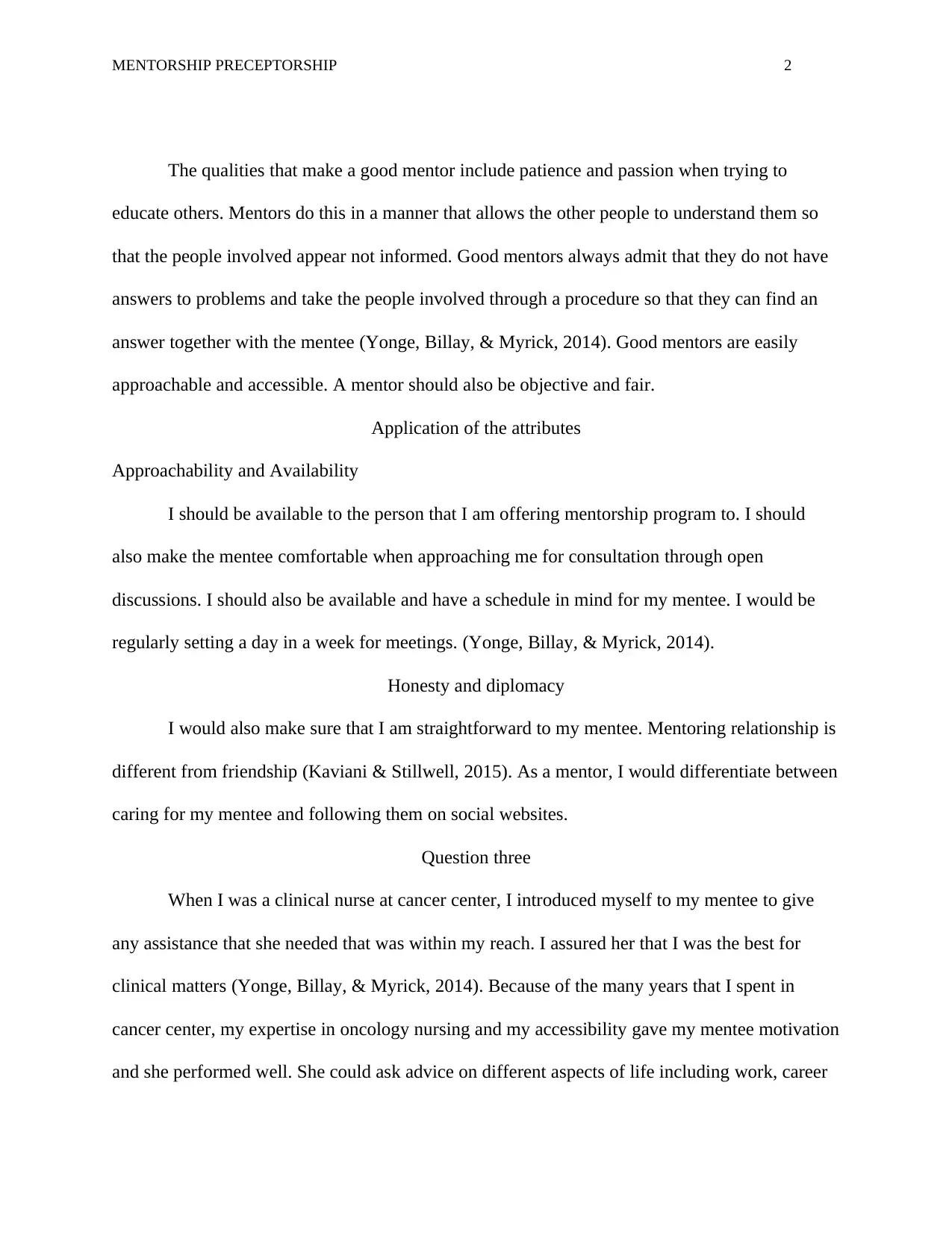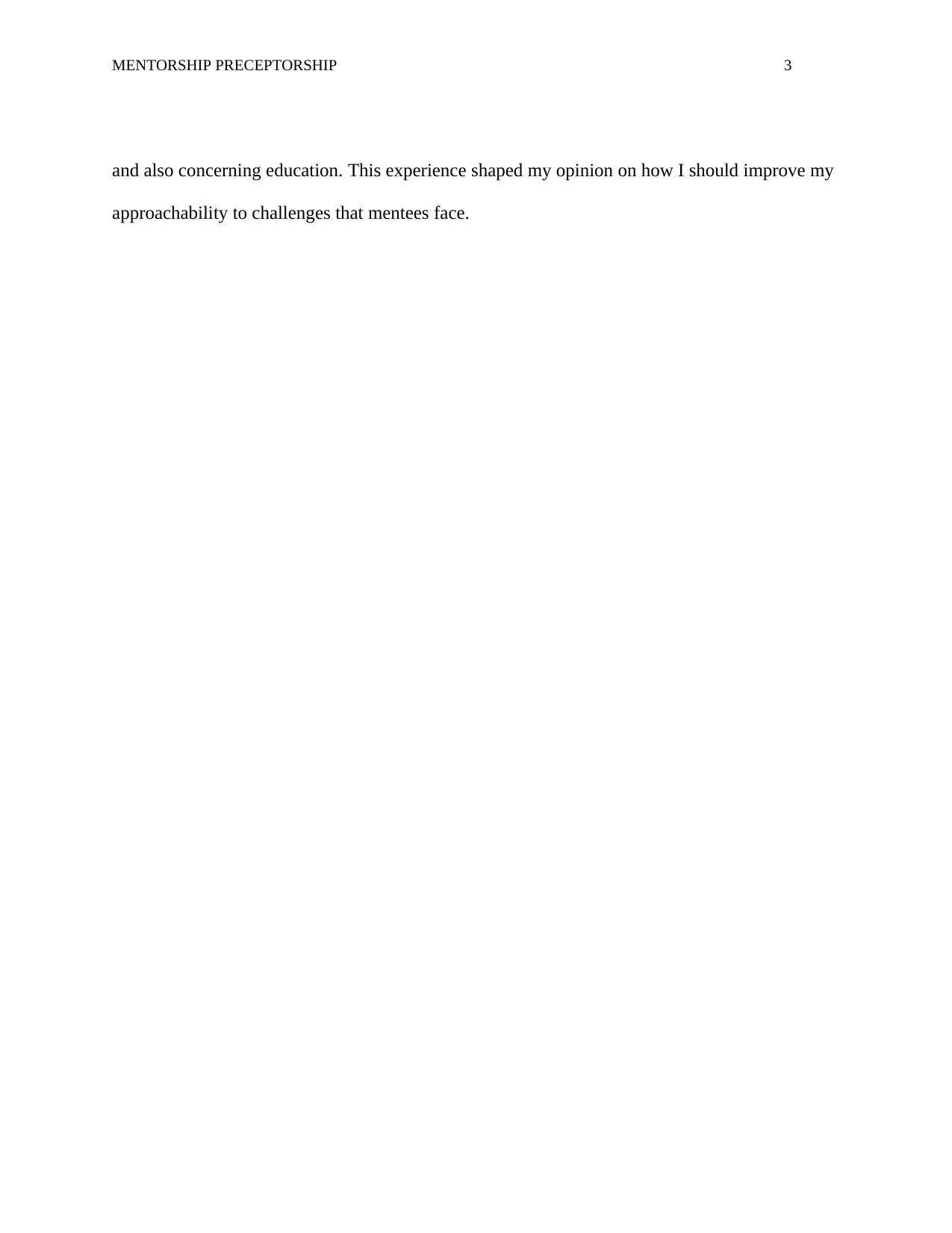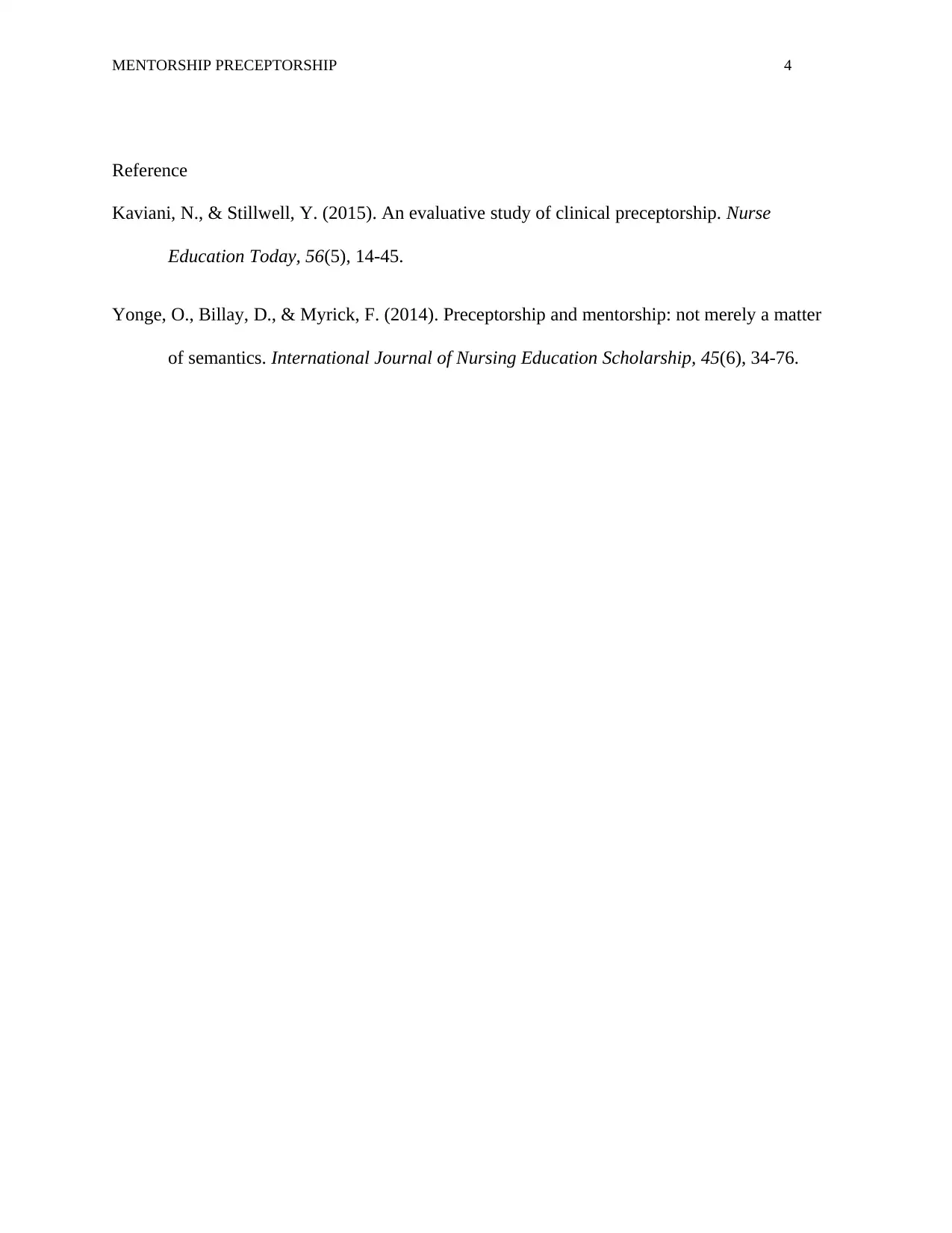Mentorship and Preceptorship: Qualities, Application, and Analysis
VerifiedAdded on 2022/12/20
|4
|430
|21
Report
AI Summary
This report delves into the concepts of mentorship and preceptorship, highlighting the qualities of an effective mentor such as patience, approachability, and honesty. It discusses the practical application of these attributes, emphasizing the importance of creating a comfortable environment for mentees and the distinction between a mentor-mentee relationship and friendship. The report also includes a personal reflection on the author's experience as a clinical nurse, detailing how their mentorship approach and expertise in oncology nursing positively influenced a mentee. The experience shaped the author's understanding of addressing the challenges mentees face and improving their approachability, providing valuable insights into the dynamics of mentorship within a healthcare setting. The report concludes by emphasizing the importance of mentorship and preceptorship in the development of healthcare professionals.
1 out of 4





![[object Object]](/_next/static/media/star-bottom.7253800d.svg)